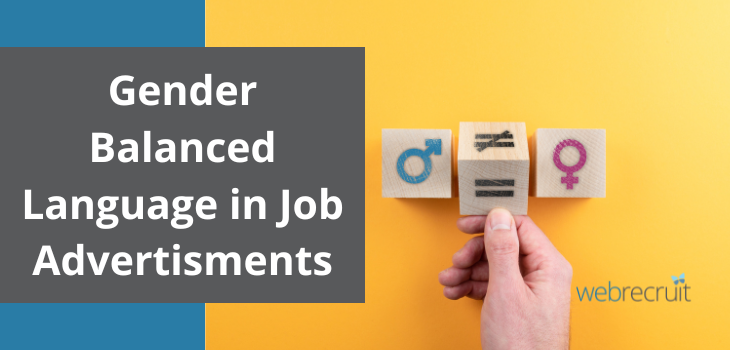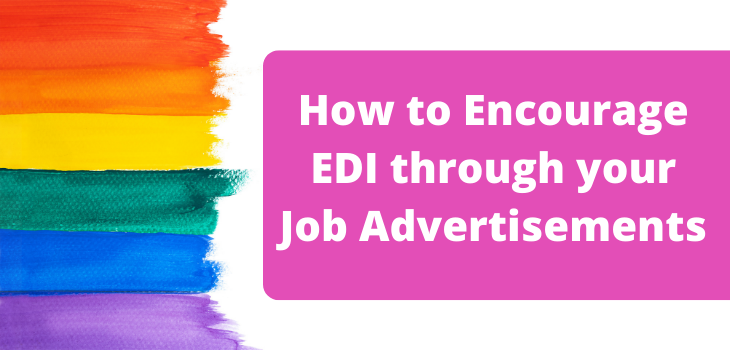The gender-based language you use can have a real impact on every stage of your hiring process, starting with your job advertisements.
In a recent study conducted, out of one million adverts, one in four of these had an overall male bias, based on word choices. A job advertisement that contains a male bias includes three or more male-coded words as opposed to female-coded words. For example, male-coded words can range from “challenging” and “active” to “individual” and “analyse”, whilst female-coded words, include “together”, “understanding” and “committed”.
These repeated cases can subconsciously put those who identify as female off applying for approximately 250,000 roles; that’s at least 250,000 roles that are failing to attract a gender-diverse talent pool and potentially missing out on the perfect candidate.
Social Role Theory suggests that gender-coded language, which began as men and women fell into roles that were stereotypical to their gender, namely “breadwinner” and “homemaker” respectively. The language then developed from there with roles that were often filled by men, such as firefighters, beginning to use an increased amount of male-coded language, whilst jobs usually occupied by women, such as nurses, developed female-coded language in their adverts.
Whatever the reasoning behind gender-coded language in job advertisements, it is key that we are now finding a balance to ensure everyone feels comfortable applying for any role whilst making sure the perfect candidate is found.
So, if you want to find out the effect of gender-coded language on applicants and how you can ensure your adverts encourage everyone, then read on!
How gender-coded language can affect applicants
In 2011, Danielle Gaucher, Justin Friesen and Aaron C. Kay conducted a study where they led a variety of experiments to determine how gender-coded language affected the gender diversity in applicants.
In one experiment, they presented female participants with two different job advertisements for a Real Estate Agent, one using male-coded language and the second using female-coded language. The conclusion they drew was that women rated the real estate agent job as less appealing when it was masculinely worded.
Overall, they discovered that an increase in masculine wording was enough to decrease women’s likelihood to apply for a role, with one aspect of this being that it led them to believe the organisations would be populated by more men and they would, therefore, not belong there.
In contrast, men displayed only a slight preference for masculinely worded advertisements and gendered wording did not affect their anticipated feelings of belongingness.
Returning to the initial study, it went on to investigate the different industry sectors and found that those most populated by women, such as education and charities, contained a high female-bias, whilst those most occupied by men, such as automotive and science, contained a higher male-bias.
This further shows that the continued use of gender-biased language will only aid in increasing the skew of each gender within these sectors.
Looking to how we can overcome this, the 2011 study has prompted the creation of gender-bias decoder tools that will analyse the language used in a job advertisement and highlight any male-coded words, along with suggestions for changes, to ensure nothing will inadvertently discourage applicants who identify as female.
Unfortunately, the studies referenced here and the subsequent tools created do not account for other gender identities, outside of male and female.
Moving forward…
Whilst there can be a gender imbalance within a multitude of roles, companies and sectors, it is essential that, as employers, you are doing everything you can to ensure your job advertisements appeal to everyone so we can continue to grow diverse workforces.
At Webrecruit, not only will we provide you with expert copywriting s
ervices to write adverts that are gender-bias free, but we will also ensure you reach the widest range of candidates through posting on a variety of job boards and creating exceptional social media campaigns to promote the roles. Contact us now to find out more about our services!





